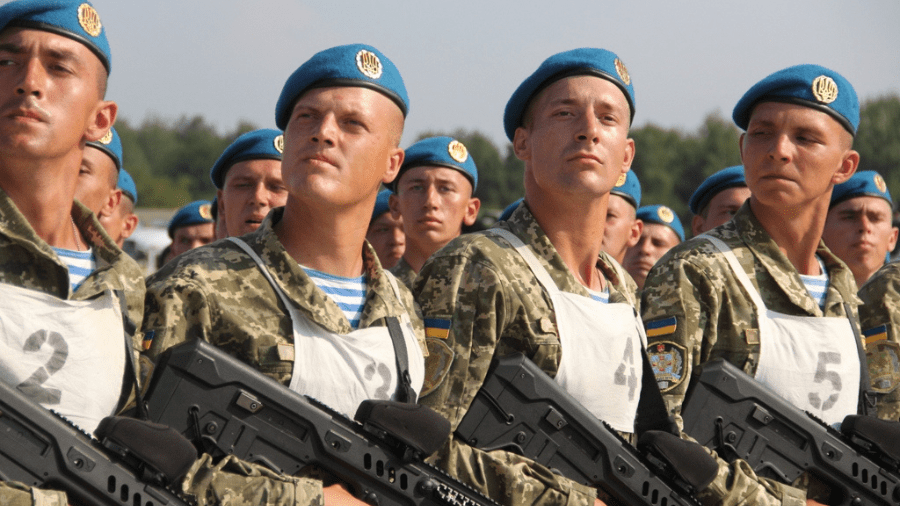This article originally appeared in The Hub.
By Richard Shimooka, September 20, 2022
In a war that has defied consistency, an almost constant presence has floated in the skies near Ukraine. An increasingly weather-beaten aerial giant, known by its code name FORTE, is a U.S. Air Force RQ-4 drone that is packed with sensors, including a powerful radar that can see several hundred kilometres into Russian-held territory. FORTE is a powerful symbol of a key enabler for Ukraine’s battlefield success over the past seven months, and how the broader clash between Western and Russian strategies, doctrine, and technology has affected the war.
Even before the apparent success of the Ukrainian offensive in the past week, the signs of this shift have been increasingly apparent. After losing the key city of Severodontsk to Russia following weeks of brutal fighting, Ukraine’s armed forces have launched major attacks on key logistical centres in occupied territories for much of July and August, with devastating results.
Russia’s vulnerability to such attacks is well evident and can be traced back to the Second World War. The Soviet Union typically mounted huge offensives, often involving over a million soldiers and thousands of artillery pieces, to smash Nazi Germany formations. This required a huge logistical enterprise—the massing of large stockpiles of materiel that could sustain heavy operations. Echoes of this approach are visible today. Russian forces have resorted to using overwhelming firepower from artillery to dislodge Ukrainian defenders in the east of the country.
During the Second World War, the Allies employed a different strategy to attack Nazi Germany. Possessing large and technically capable air forces, they were able to strike the weak points deep behind enemy lines. They were supported by a multi-faceted intelligence system, including code breakers and aerial photo-reconnaissance, that allowed them to quickly identify and track opposing units on the battlefield. Allied forces were able to pinpoint firepower on concentrations of numerically superior German troops, interdicting them by attacking their weaknesses. This extremely effective strategy often paralysed Nazi units and allowed the Allied advance to identify and exploit weak points in their defensive lines.
For much of the Cold War, NATO militaries clung to this doctrine against the Soviet Union. To stem the much larger Warsaw Pact armies, a massive effort to strike at key logistical points and infrastructure would be launched to slow down their assault. In the 1980s, it was supported by emerging developments in microprocessing and networking, allowing for persistent reconnaissance coverage of the battlefield. While the Soviet Union developed responses to these battle plans, its ability to adapt was debatable. Moreover, the Warsaw Pact’s advantage in numbers was expected to overcome the qualitative advantage possessed by the West.
The Ukrainian war has been a rude awakening for Putin’s Russia, which is now encountering this type of warfare for the first time. Even before the war started, Western Intelligence systems have provided a crystal clear window into Russia’s efforts. It cannot be understated how essential it was to effectively organize Ukrainian defence in the first desperate days of the invasion.
The Ukrainians attempted to undertake similar interdiction strikes at the start of the war. Yet their technical limitations and insufficient numbers limited their ability to fight this battle. This changed several months ago when the U.S. government provided the advanced, long-range High-Mobility Artillery Rocket System (HIMARS), which have allowed Ukrainian forces to strike at targets deep within the Russian-held territory.
Russia’s vulnerability to such attacks was well understood within NATO; it is highlighted in numerous doctrinal documents. Ukrainians also enjoy significant vast information superiority over Russia. With access to U.S., Canadian, and European intelligence, Ukraine can quickly identify, track and coordinate attacks and pinpoint Russian vulnerabilities—a key part of the Ukrainian battlefield successes against a much larger foe. FORTE, as well as other assets, including satellite reconnaissance, aircraft, and signals intelligence, provide Ukraine with the ability to identify the location of key supply dumps, weaknesses in the Russian lines, as well as formations that could potentially attack their own forces. It can react nimbly to opportunities and threats with extreme effectiveness.
These systems have given some breathing room to the Ukrainians, allowing them to build new formations that are being employed in this offensive. While the apparent progress has been surprising, it bears warning that these offensives are in their early stages and their outcomes are not at all clear. While Russia has suffered devastating losses, its manpower and materiel reserves remain extremely large. It has resorted to paying bonuses several times higher than normal and its troops come from areas far away from Moscow, limiting the political fallout from casualties and preserving regime stability.
Moreover, Ukrainian forces have also suffered grievous losses over seven months of war, forcing them to deploy newly raised units to fill in gaps. It will constantly struggle with its manpower and equipment constraints for the foreseeable future.
Thus far, the provision of Western arms and doctrinal concepts have undoubtedly been decisive in assisting the Ukrainian government to defend its territory. But the West still needs to prepare for the long, drawn-out conflict, one that will require the continual provision of economic and military support to Ukraine, while dealing with domestic consequences, such as limited access to Russian energy supplies in Europe.
Still, the situation likely favours the Ukrainian government in the long-term—it is fighting an existential war of existence against an especially depraved opponent. The West has started to provide the foundation to an eventual victory, but it must see it through to the end.
Richard Shimooka is a senior fellow at the Macdonald-Laurier Institute.






